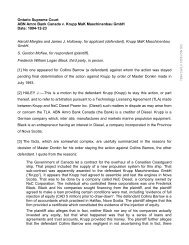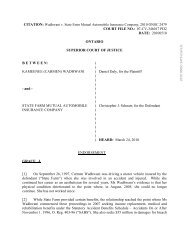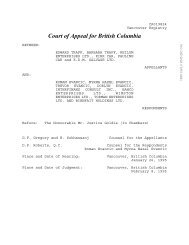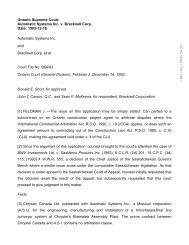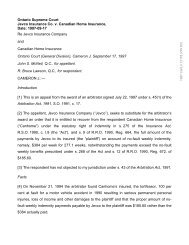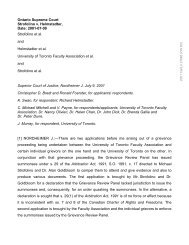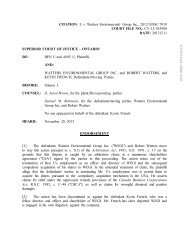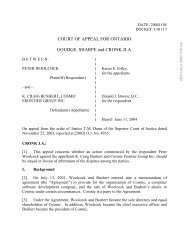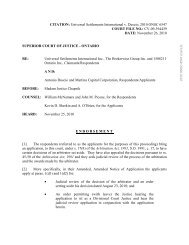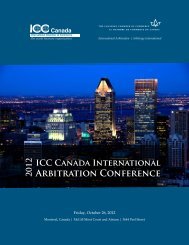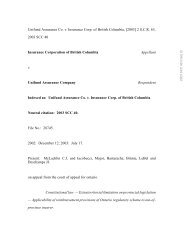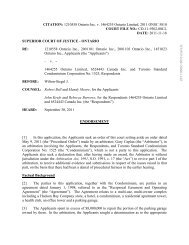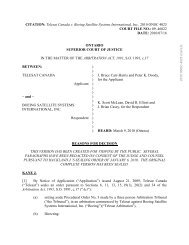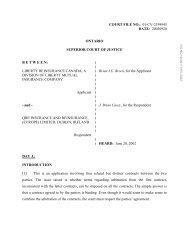United Mexican States v Karpa 2003 CanLII 34011 - Arbitration Place
United Mexican States v Karpa 2003 CanLII 34011 - Arbitration Place
United Mexican States v Karpa 2003 CanLII 34011 - Arbitration Place
- No tags were found...
You also want an ePaper? Increase the reach of your titles
YUMPU automatically turns print PDFs into web optimized ePapers that Google loves.
- 8 -senior official that would disclose how Mexico was treating other taxpayers but withoutdisclosing specific details relating to the individual taxpayer that would place the official inviolation of the fiscal law.[36] The Tribunal welcomed this agreement. The Tribunal had earlier ruled that it reservedthe right to draw adverse inferences if a party did not comply with one of its directions toproduce evidence.[37] In summary, the Intervener argues that the approach adopted by the majority wasinconsistent with the agreement of the parties and the rules governing arbitration as it forces aparty to disclose information notwithstanding Article 2105 or risk losing the arbitration.[38] And further, by drawing an adverse inference from Mexico’s refusal to produce thetaxpayer’s documents at issue, the Tribunal failed to take into account Article 2105 and therebyexceeded the scope of the submission to arbitration in breach of Article 34(2)(a)(ii) of the ModelLaw.<strong>2003</strong> <strong>CanLII</strong> <strong>34011</strong> (ON SC)POSITION OF THE RESPONDENT FELDMAN[39] The Respondent here submits to the court that there is no basis upon which this court canset aside the award and the application should be dismissed.[40] Feldman supports that position on a number of grounds.1. That members of International Trade Tribunals are drawn from a roster ofinternational trade experts and their decisions should be accorded a highlevel of deference by reviewing courts.2. That that deference to the arbitral award is particularly appropriate whereas here, the applicant challenges a finding of fact. Moreover, given thelimited ground for review under Article 34 of the Model Law, this courtshould decline any invitation to re-weigh the evidence or visit findings offact made by the Tribunal.3. That a review in this case by the court is further limited by the terms ofArticle 34 of the Model Law.4. That the highest degree of deference should be shown to the Tribunal’sfindings because of the full privative clause that applies in the presentcase.5. That the Tribunal never imposed an obligation on Mexico to releaseinformation covered by the NAFTA Article 2105 and it was raised onlyafter the decision of the Tribunal had been issued.



